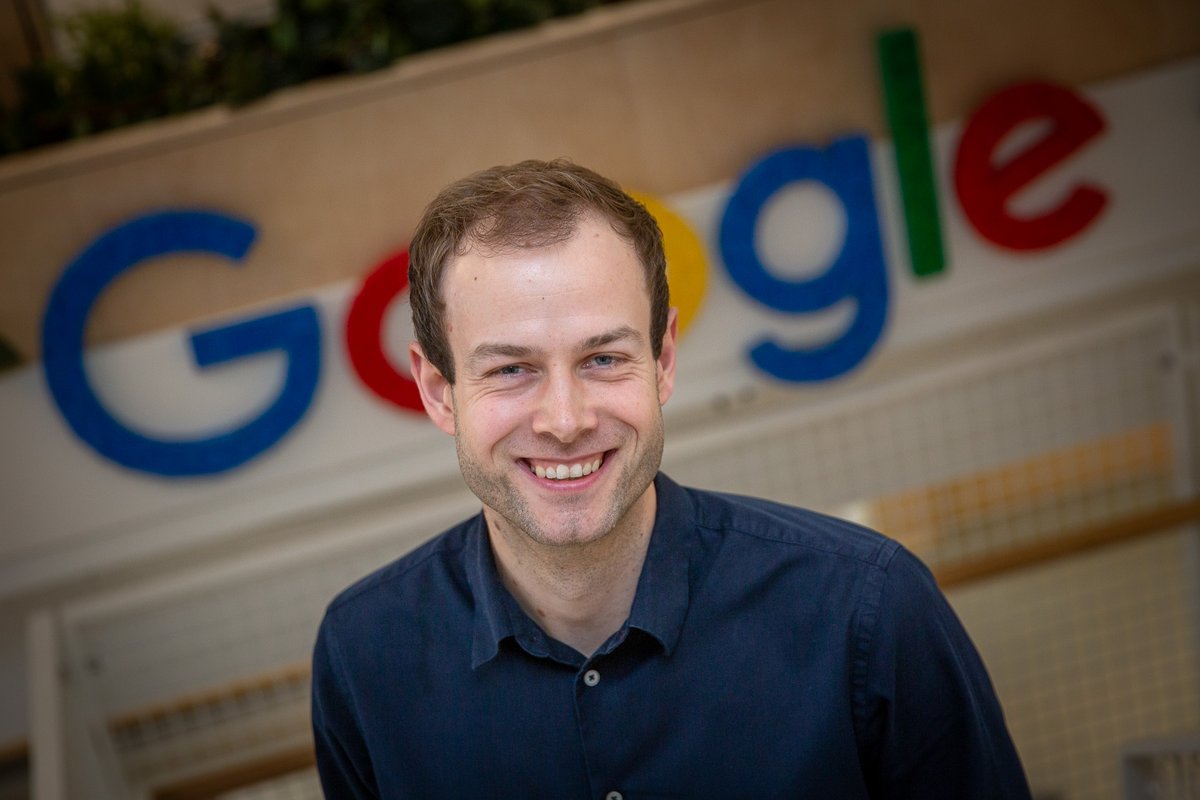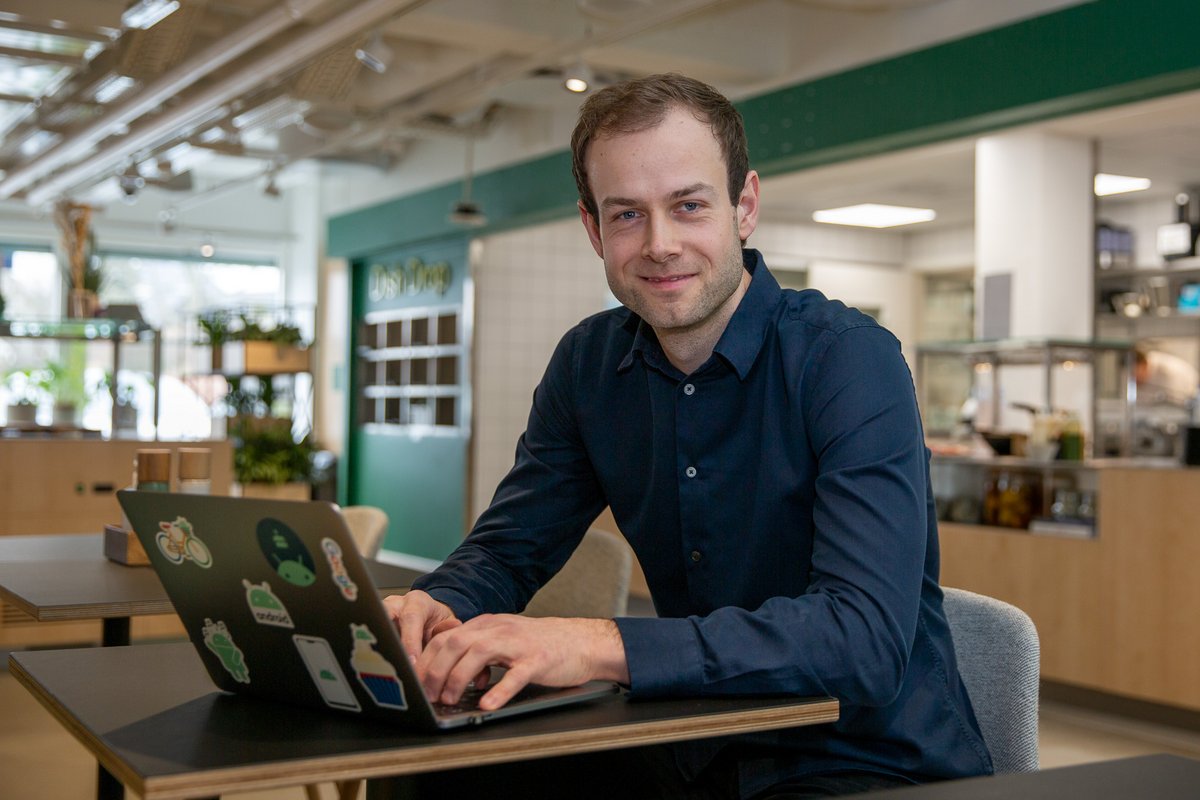
Christoffer Quist Adamsen has spent most of his career working for Google. First as an intern in California, and today as a software developer at the tech-giant’s branch in Aarhus.
He is working on developer tools for Android-app developers. The purpose of the tools is to optimise apps so that they take up less space and run faster.
"It's great that my work has so much influence. The code our product generates runs on millions - if not billions - of Android devices like telephones, televisions and clocks. I’m actually a little humbled by the fact that even a tiny improvement can make such a huge difference, because it comes out to so many users," says Christoffer Quist Adamsen, who studied his Bachelor’s, Master's and PhD at the Department of Computer Science at the Faculty of Natural Sciences.
However, it was far from certain that he would go all the way and write a PhD Instead of continuing directly into business.
"That was probably the career choice I was most in doubt about. But when I look back, it was also the most important choice: both in relation to the experience and where I am today."
He thought about his situation a lot before applying for a PhD, and at first it seemed like "a lot to take on".
"There were a lot of unknowns and challenges, for example standing at a podium as a guest lecturer or writing research articles. I had to overcome something or other inside me before I applied."
Ultimately, an exciting project course in analysing programming languages convinced him and gave him the courage to dive into the field with a PhD. His decision turned out to be completely right.
His years as a PhD student gave him academic and social memories for life, and he highlights in particular the good collaboration with his supervisor and a postdoc from the department, who he worked with from early on in his studies. He also got a lot out of communicating his own research.
"In some situations I was thrown in at the deep end, for example when I had to present my work at international conferences. I really learned a lot, and I don't think I’d have had much experience with this if I hadn’t taken my PhD programme."
He also believes that the extra years of study have helped to open doors in his career.
"I think it’s given me better career opportunities within this specialist area that’s so incredibly exciting to me. I also think that I’d have found it more difficult to get a position like the one I have now, if I didn’t have the experience I got during my PhD," he says, and points out that six out of seven of his current team at Google have a PhD on their CV.

He daily applies theoretical and practical skills he gained from his time at the Department of Computer Science.
"I don't feel that my job’s far from much of what I did at university. I still use a lot of the theory we were taught - from algorithms and data structures to programme analysis and gathering evidence. We often work on algorithms that have a lot in common with some of the issues presented in computer science courses."
He can also feel that he still applies several of the working methods from his PhD. This applies in particular to his ability to work independently and generate new ideas for optimising solutions.
He advises others who are considering following the same path to get in touch with the research group that you are interested in. He also stresses that it may take some time and effort to settle down as a PhD student. But it's all worthwhile in the end.
"You get through it all - whether it's writing your first research article or even making a presentation at an international conference. I was really nervous when I had to present my first article. But when things go well, you feel fantastic afterwards, and you get better and better every time," he says.